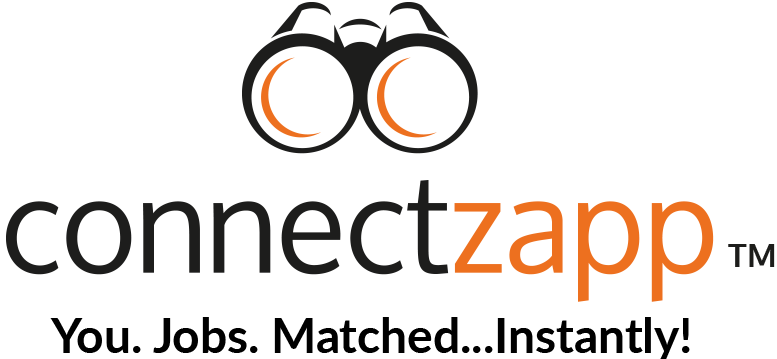How To Get A Job – How to use the 60% Rule to get a job in ANY industry

How To Get A Job
How To Use The 60% Rule To Get A Job In ANY Industry
It’s frustrating looking for work.
How do you get a job in the industry you want to be in, rather than having to accept the first job you’re offered, which could still take months to find?
It’s disheartening being told no over and over again, but it doesn’t have to be that way.
If you’d like to know the secret to how to find a good job or how to find a job you love, then start using the 60% Rule and things will change for the better.
There are 3 parts to the 60% Rule. When you use them you will:
- Better understand what employers are looking for and what they want from you
- Be able to directly target your resume so it gets through the candidate screening software, have it hit the hiring manager’s ‘hot button’ so they feel they HAVE to get you in for an interview
- Present your best case at the interview so the hiring manager feels like you’re the one they should hire, even if you have less experience than other candidates they are considering
The 60% Rule is a guide which states you should spend:
- 60% of your time researching your chosen industry
- 20% of your time crafting your resume based on what you learned from your research
- 20% of your time learning how to present a powerful image in an interview
Let’s look at how to find a new job by breaking down each point one by one.
Research - The 60%
Let’s be very clear, looking for a job is a sales process. You are selling your services to the highest bidder. Employers will pay for your services if they see value in what you offer (i.e. your skills, experience and what value you can offer their organisation). The better the ‘case’ you build to present to potential employers, the easier it will be to secure the job you want and the more money you will be offered.
You need to understand what your preferred employers are looking for and expecting from you in the industry you want to get into. To do that, you need to do your research.
There are 2 ways you can approach your research, depending on what you want:
- You may be happy to work for any company in your chosen industry or,
- You have a particular company in mind you would like to work for
Depending on what you decide, your research will mean you either:
- Research the industry, the role you are most interested in and what companies want in new recruits or,
- Research your preferred company and what they look for in their new hires
Researching A Company
If your preference is to work for a particular company then you need to know as much as possible about the company. You should find out:
- The products or services the company sells, their price points, how they are sold, who buys them, what their sales cycle is (i.e. how long it takes to make a sale from first contact with a potential buyer, to when they buy, on average), what support the company offers its buyers/customers and how they deliver that support
- How many employees they have, what departments exist within the company and what each does, which department is most appealing to you and who heads up that department, what that person is like (i.e. a numbers person or a great team manager, are they reserved or outgoing?) and how your preferred department is currently performing within the larger organization
- The type of person the company prefers to hire in the department you would like to be in
- The skills and experience that are expected in the department and role you would like to work in
This is not an exhaustive list. There may be other information you can find out about the company.
Don’t be intimidated by this list. Most of the information you can find out via an online search. Another great way to find out about a company is to engage with them on social media. Many social media managers will respond to you when you reach out to them because it’s their job! They can be a very useful source of information. They can give you suggestions on who to contact within the company, the type of person the company looks for and how to present in an interview. In fact, if you build a relationship with the company social media manager they may even be prepared to recommend you to the hiring manager or head of the department you want to work in. This means you can shortcut your application process and be invited to an interview directly.
Researching The Industry
Get to know the industry you want to work in. What’s it really like? What skills and experience will be expected of you to be offered a job in the role you prefer?
If you don’t have direct industry experience, it doesn’t mean a company won’t consider you. Show a hiring manager how you are the best pick for the job, even though you don’t have direct industry experience. Here’s how:
- Consider the skills and experience the role requires and what companies are looking for in new hires (i.e. skills, experience, a network of contacts etc?)
- Do a stocktake of your skills, experience and anything else you have that you could use to convince a hiring manager that you are the best choice to hire
- Build your case for your resume and interview
Remember, a company will hire you when they are convinced you can add value to their organisation. So some things to consider are:
- If you don’t have the required experience, is there somewhere else you can get similar experience?
- How can your current experience be used by the company? Companies in an Industry can be notoriously guilty of all doing the same thing, whereas companies in a different industry often get the same job done in a different way. So what ‘other industry’ experience can you bring to the table that could enhance the company you apply to?
Make notes on all this so you can get a clear understanding on:
- What companies are looking for and,
- What you can offer them
Craft Your Resume - The 20%
When you have a clear idea of what you can offer a company it’s time to put it into your resume. Your resume is your written ‘sales proposal’. It’s job is to get you to an interview. To the extent it does that, it’s done it’s job.
Here are some resources to help you write a resume that has impact:
- 5 things your resume must have to get more job interviews
- How to write a resume that has impact
As part of your ‘sales proposal’ designed to get you an interview, your resume also needs to get you past any candidate screening software the company may use.
Don’t be intimidated by screening software or terms like AI (artificial intelligence). All these software programs look for key words and terms in resumes and use them to create a shortlist.
To make sure your resume gets shortlisted by the screening software, make sure you use the same words and terms in your resume as appear in the job advertisement. When you do this the screening software will recognise your resume as a match and shortlist it.
The Interview - The Last 20%
When you’ve done your research and have a well crafted resume that contains the key words and terms the company used in their ad, there’s every chance you’ll be asked in for an interview. This is your opportunity to ‘seal the deal’ and get the job!
In an interview it’s better to go in with an attitude of ‘I’m going to impress’ rather than be nervous and worried you could blow it. Take the attitude that if you are too quiet or nervous in the interview you have more of a chance of not being offered the job than if you act confidently and fully engage with the interviewer, hold eye contact with them, ask intelligent questions and aim to impress them.
Here are some resources to help you:
- 6 persuasive phrases to use in an interview
- How to be charming in an interview
- How to command respect in an interview
In an interview, when you present well, dress appropriately for the industry and ask intelligent questions you give yourself the best chance of being chosen for the job.
So there you have it, the 60% Rule in job hunting. Use it. It works!
Always remember, it’s important to do your research so you know what the company you are applying to is expecting. When you know that, you can position yourself to be the person who gives them what they are looking for.
How To Get A Job Fast
If you need to know how to find a job fast, remember the key is to do your research fast. If you need money now and can’t wait months to be offered the job you really want then get a lower level job or maybe a part time position so you can then spend the time to get the job you really want.
How To Get A Job With No Experience
Having no experience is not a deal breaker to securing the job you want. This is where your other industry experience comes in. Do a stocktake of your skills. How can they be presented in your resume (and in an interview) to show that what you know would be an asset to the company? If you don’t have relevant experience then find a job that requires a similar skill set, but easier to secure, so you can gain the required experience for the job you really want. Go here – how to get a job with no experience
How To Get A Job In Another State
When you’re looking for a job in another state, your job hunting process is the same. Use the 60% Rule. The only difference is you should make sure your resume clearly states that you are prepared to move for the job. This is actually an opportunity for you to show your potential new employer how serious you are about working for them, so much so that you are prepared to move interstate! Go here for how to get a job in another state
How To Get A Job On A Cruise Ship
Working on a cruise ship gives you the opportunity to see different countries, great locations and meet new and interesting people. Use the 60% Rule to do your research so you can ‘sell’ your skills and experience to the cruise companies. Go here for how to get a job on a cruise ship
How To Get A Job As A Teenager - How To Get A Good Job
For help on how to find a job as a teenager, keep in mind that employers don’t expect you to have years of experience. What they are looking for is a great work ethic, someone who can be trained and someone who can work as part of a team. A great way of showing you can work as part of a team is to show any team sports you play. Team sports show commitment and the ability to work with others towards a common goal.
How To Get A Good Job After 50
The positives are you have many years of experience. The negative perceptions hiring managers can have is that you may be set in your ways and possibly can’t be trained in new skills. Most hiring managers are younger than 50 so tend to favour people around their own age.
You can show you are active by putting any sports you play and your interests onto your resume. Doing this gives a hiring manager a clearer idea of who you are. If you have a great looking photo, put that on your resume too. Use your experience to show why you are the best choice for the job. Go here for how to get a good job after 50.
How Long Does It Take To Get A Job?
The length of time it takes to get a job depends on the job. The closer you can match your skills and experience to the job you are applying for, the more likely you will be offered the job.
The average time to find a job has been described as days or weeks, all the way out to between 3 to 6 months. By following the 60% Rule and doing your research quickly, you can shorten the time it takes for you to secure your next job significantly.
How To Find A Job After College
College graduates are usually in demand, so when you use the 60% Rule in your job hunting it should be all you need to secure the job you want. Go here for how to find a job after college
How To Find A Job Online
There are more and more companies offering jobs online. Go here for how to find a job online
How To Find A Part Time Job
Part time jobs can be found in any industry. Go here for how to find a part time job




